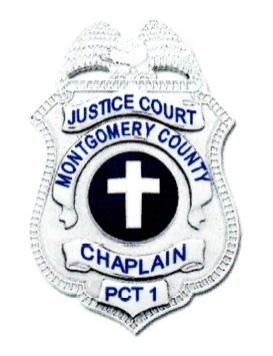 The Freedom From Religion Foundation has filed a motion for summary judgment in its federal case against a Texas justice of the peace who regularly foists prayer upon his courtroom attendees.
The Freedom From Religion Foundation has filed a motion for summary judgment in its federal case against a Texas justice of the peace who regularly foists prayer upon his courtroom attendees.
FFRF originally challenged the courtroom prayers in a lawsuit filed in March 2017, and due to various technical reasons refiled the case against Montgomery County Judge Wayne Mack last year with an anonymous local attorney acting as co-plaintiff. The state/church watchdog and Attorney “John Roe” are now asking for a swift decision to halt the unconstitutional practice.
The plaintiffs assert that Mack has abused his authority as a judge to illegally coerce attorneys, litigants and other citizens into participating in his courtroom prayers.
“Judge Mack’s courtroom-prayer practice is unconstitutionally coercive of those who appear in his courtroom,” the motion says. “Because Judge Mack’s court sessions coerce court participants into a religious practice, he has violated one of the strongest most fundamental commands of the Establishment Clause of the First Amendment.”
Mack, a formerly licensed minister who attended Jackson College of Ministries, where he planned to major in theology, made the unprecedented decision as a judge to solicit chaplains to open his court sessions with prayer, a practice not replicated by any other court in the country. Unsurprisingly, the overwhelming majority of the chaplains in the program, and the prayers they deliver, have reflected Mack’s personal Christian beliefs. By spring 2015, after receiving scrutiny from FFRF, which lodged a formal complaint to the State Commission on Judicial Conduct, Mack began revising his courtroom prayer practice. Now, after attorneys have indicated their presence in the courtroom and after the docket has been called, but before Mack has entered, the bailiff gives a brief introductory statement describing the prayer protocol. This announcement is supposed to include a statement that those opposed to prayer may leave the courtroom without affecting the outcome of their cases, although it’s been inconsistently incorporated. Mack then enters the courtroom, mere moments after the bailiff’s announcement, and after his introduction, the chaplain leads a prayer. Anyone leaving the courtroom becomes conspicuous and the courtroom doors are often locked during the prayer.
FFRF co-plaintiff John Roe has been present in Mack’s courtroom on many occasions in recent years, and on each of these occasions, he was exposed to a courtroom prayer led by a Christian chaplain. Roe objects to any government official dictating when or how he prays. In mid-June 2017, while Roe was in the courthouse but not yet in the courtroom, the clerk of court entered the room and instructed Roe and the litigant that they “need[ed]” to enter the courtroom to participate in the prayer. This wasn’t framed as a request, but as a demand. Roe complied because he believes that publicly registering his objection to the courtroom-prayer practice would jeopardize his business, since it would bias Mack against him and his clients.
Now, Roe regularly declines business in order to avoid appearing in Mack’s courtroom. On some matters, where a district court has concurrent jurisdiction with Mack’s court, Roe elects to bring claims in the district court instead of Mack’s court, despite the higher filing fees, higher service fees and the generally slower docket, in order to avoid Mack’s prayer practice. These decisions, motivated by a desire to avoid government-prescribed prayer, are not choices that any attorney or private litigant should have to make.
FFRF’s motion makes several arguments, including that plaintiffs have standing to pursue their claims, that Mack’s prayer practice is unconstitutionally coercive and that its primary purpose and effect is religious. FFRF also notes that Mack’s practices cannot be justified by citing a history of such courtroom abuses and cannot be compared to legislative prayer.
FFRF seeks a judgment declaring that Mack’s courtroom prayer practice violates the Establishment Clause and awards to plaintiffs of their reasonable attorneys’ fees and costs.
“Mack’s actions remain constitutionally beyond the pale,” says FFRF Co-President Annie Laurie Gaylor. “No other person in the country, fortunately, has had to undergo the religiously coercive ordeal our plaintiff has been subjected to.”
FFRF and Roe are being represented by FFRF Associate Counsel Sam Grover, with FFRF Associate Counsel Elizabeth Cavell and Attorney Ayesha Khan of Washington, D.C., serving as co-counsels. Mack, as Montgomery County justice of the peace, has jurisdiction over minor misdemeanor offenses and lesser civil matters. Montgomery County is north of Houston, and its county seat is Conroe.
The Freedom From Religion Foundation has 33,000 members and several chapters all over the United States, including more than 1,400 members and a chapter in Texas.

